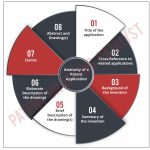Master Abstract And Concrete Nouns With An Exciting And Interactive Worksheet – Boost Your Grammar Skills Now!
Worksheet on Abstract and Concrete Nouns
Introduction
Smart Peoples, welcome to an informative article on the worksheet on abstract and concrete nouns. In this article, we will delve into the concepts of abstract and concrete nouns, their differences, and how to identify them. Whether you are a student looking to improve your grammar skills or a language enthusiast seeking to deepen your understanding, this worksheet will prove beneficial.
1 Picture Gallery: Master Abstract And Concrete Nouns With An Exciting And Interactive Worksheet – Boost Your Grammar Skills Now!

Understanding the difference between abstract and concrete nouns is crucial in mastering the English language. Abstract nouns refer to ideas, concepts, or qualities that cannot be perceived by the senses, such as love, happiness, or bravery. On the other hand, concrete nouns are tangible and can be experienced through the five senses, such as chair, dog, or book.
In this worksheet, we will provide you with exercises and examples to help you practice identifying and differentiating between abstract and concrete nouns. By the end of this worksheet, you will have a solid understanding of this fundamental grammar concept.
What are Abstract and Concrete Nouns?

Image Source: liveworksheets.com
Abstract nouns are words that represent ideas, emotions, or qualities that cannot be experienced through the five senses. Examples of abstract nouns include love, happiness, bravery, and honesty. These nouns are intangible and cannot be seen, heard, smelled, tasted, or touched.
Concrete nouns, on the other hand, refer to physical objects that can be perceived by the senses. These nouns are tangible and can be seen, heard, smelled, tasted, or touched. Examples of concrete nouns include chair, dog, book, and apple.
Understanding the difference between abstract and concrete nouns is essential for effective communication and writing. It allows us to express ourselves accurately and convey our thoughts and ideas to others.
Who Uses Abstract and Concrete Nouns?
Abstract and concrete nouns are used by everyone who communicates in the English language. Whether you are speaking, writing, or reading, you will encounter and use these types of nouns. They are fundamental building blocks of grammar and are necessary for expressing oneself clearly and effectively.
Students of all levels, from elementary school to university, will benefit from understanding and practicing abstract and concrete nouns. These concepts are often covered in language arts or English classes, and worksheets like this one provide valuable practice and reinforcement.
Writers, poets, and other artists also utilize abstract and concrete nouns extensively in their work. They use abstract nouns to evoke emotions and convey complex ideas, while concrete nouns bring their descriptions to life and engage the readers’ senses.
When to Use Abstract and Concrete Nouns?
The choice between abstract and concrete nouns depends on the context and the message you want to convey. Abstract nouns are often used when discussing emotions, concepts, or intangible qualities. For example, Her bravery inspires others or Love is a powerful force.
Concrete nouns, on the other hand, are used when referring to physical objects or things that can be perceived through the senses. For example, The dog chased the ball or I need a new chair for my desk.
Understanding when to use abstract and concrete nouns will enhance your writing skills and allow you to express yourself more precisely.
Why Are Abstract and Concrete Nouns Important?
Abstract and concrete nouns are vital in language and communication for several reasons:
1. Clarity: Using the appropriate type of noun ensures that your message is clear and understandable to the reader or listener.
2. Vivid Descriptions: Concrete nouns bring your descriptions to life, engaging the reader’s senses and making your writing more engaging.
3. Emotional Impact: Abstract nouns allow you to convey emotions and evoke a specific response from the audience.
4. Vocabulary Expansion: Understanding abstract and concrete nouns expands your vocabulary and allows you to express yourself more precisely.
5. Grammar Mastery: Mastering the concepts of abstract and concrete nouns is essential for overall grammar proficiency.
How to Identify Abstract and Concrete Nouns?
Identifying abstract and concrete nouns requires careful observation and understanding of their characteristics. Here’s how you can identify them:
1. Look for Perceptibility: Determine if the noun can be experienced through the five senses. If it can, it is a concrete noun. If not, it is likely an abstract noun.
2. Check for Tangibility: If the noun represents something tangible, such as a physical object, it is a concrete noun. If it represents an idea or quality, it is an abstract noun.
3. Contextual Analysis: Consider the context in which the noun is used. Sometimes, the meaning can be inferred from the surrounding words or the overall message being conveyed.
4. Practice, Practice, Practice: The more you practice identifying abstract and concrete nouns, the more proficient you will become. Worksheets like this one provide excellent practice opportunities.
Pros and Cons of Using Worksheets on Abstract and Concrete Nouns
Worksheets on abstract and concrete nouns offer several advantages and disadvantages:
Advantages:
1. Clear Understanding: Worksheets provide clear explanations and examples that help students understand the concepts better.
2. Practice Opportunities: Worksheets offer ample practice exercises to reinforce the learning process.
3. Self-Paced Learning: Students can work on the worksheets at their own pace, allowing for individualized learning.
Disadvantages:
1. Limited Scope: Worksheets may not cover all possible scenarios or examples, limiting the depth of understanding.
2. Lack of Real-Life Context: Worksheets often present isolated examples, which may not reflect real-life language usage.
3. Repetition: Worksheets can become repetitive, leading to disengagement and reduced motivation.
Frequently Asked Questions (FAQ)
Q: Are there any exceptions to the rules of abstract and concrete nouns?
A: Yes, language is dynamic, and there are always exceptions. However, understanding the general rules will provide a solid foundation for identifying abstract and concrete nouns.
Q: Can a noun be both abstract and concrete?
A: In some cases, a noun can possess characteristics of both abstract and concrete nouns. For example, the noun time can be perceived as a concept (abstract) or measured (concrete) using a clock or calendar.
Q: How can I improve my understanding of abstract and concrete nouns?
A: Practice is key. Engage in activities such as reading, writing, and using abstract and concrete nouns in daily conversations. Worksheets like this one provide valuable practice opportunities.
Q: Are abstract and concrete nouns the same in all languages?
A: No, the concepts of abstract and concrete nouns may vary in different languages. It is essential to understand how these concepts apply specifically to the English language.
Q: Can I use abstract and concrete nouns interchangeably?
A: Abstract and concrete nouns convey different meanings and are used in specific contexts. While there may be instances of overlap, it is generally not recommended to use them interchangeably.
Conclusion
In conclusion, understanding abstract and concrete nouns is crucial in developing strong language skills. The ability to differentiate between these two types of nouns enhances clarity, vividness, and emotional impact in communication and writing. By practicing with worksheets like this one, you will solidify your understanding and master the identification of abstract and concrete nouns.
Take action now and begin your journey towards grammar proficiency with this worksheet. Explore the exercises, examples, and explanations provided, and watch as your language skills improve. Happy learning, Smart Peoples!
Disclaimer: The information provided in this article is for educational purposes only. The author and publisher are not responsible for any misuse or misinterpretation of the material presented.
This post topic: Abstract



